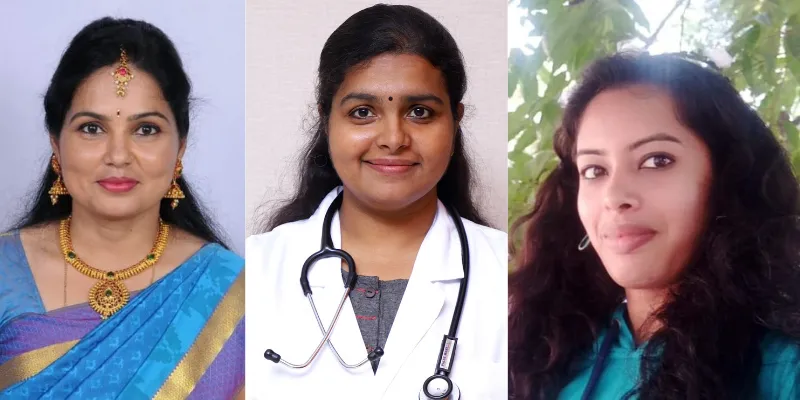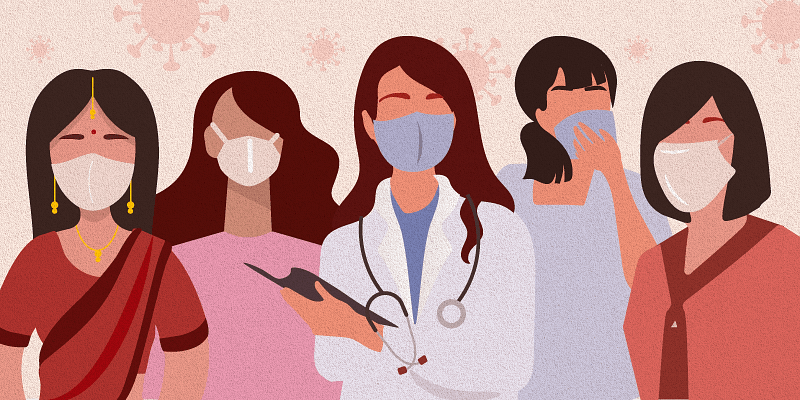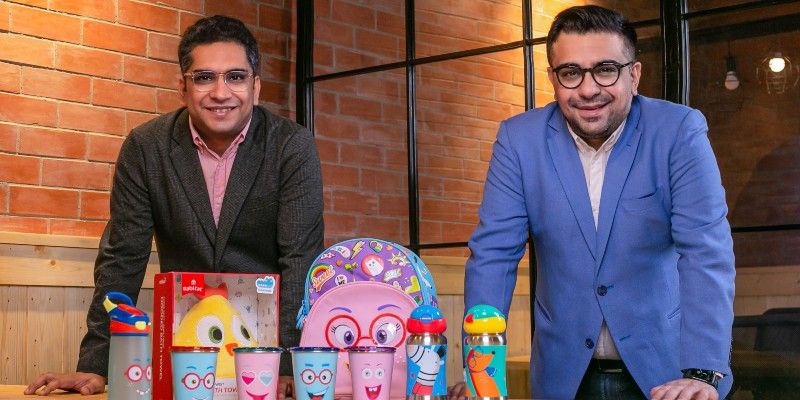One year of lockdown: How doctors, nurses rendered selfless service braving risks
As India went into a lockdown a year ago to curb the spread of COVID-19, doctors, nurses, and healthcare workers battled the disease on the frontlines, saving the lives of patients while risking their own. HerStory documents the experience of three such frontline warriors.
As a nationwide lockdown to curb the spread of COVID-19 began on March 25, 2020, most people had to confine themselves at home. But for frontline workers including doctors, nurses, and healthcare staff that was never an option.
They endured long shifts wearing personal protective equipment (PPE), their working conditions were often less than satisfactory, and they were constantly at risk of catching the coronavirus disease. But through it all, they remained resilient and saved the lives of many patients.

(From L to R: Nurse Suvarna RN, Dr Arockia Virgin Fernandes, Nurse Elizabeth Rani)
HerStory spoke to some doctors and nurses about their experience on the frontlines during the last year.
RN Suvarna
When news of the fast-spreading COVID-19 virus emerged from Wuhan in China, hospitals in India started educating nurses, doctors, and other healthcare workers about the precautions to be taken while dealing with patients.
RN Suvarna, Nursing In-charge at BGS Gleneagles Global Hospital in Bengaluru, says a slew of precautions were incorporated in the Continuing Medical Education classes for nurses in December 2019.
From April to December, Suvarna and her colleagues were wearing PPEs for long hours, taking baths four times a day, and staying at the hospital while working in the COVID-19 ward.
The PPEs had to be worn throughout the shift, during which they could not drink water or use the washroom.
“Of course, we were scared in the beginning as even stepping outside our homes was dangerous, but when there is a patient suffering and in need of care, we forget about ourselves,” says Suvarna, who lives with her daughter and husband. “Our concern then is just taking care of the patients.”
A few months after working in the COVID-19 ward, Suvarna tested positive for the virus on July 21. She spent a month recovering from the illness and had to quarantine herself during that time. In January this year, she resumed duties in the transplant ward.
When the lockdown began, Survarna’s 20-year-old daughter, Nivedita, who is pursuing higher studies in ayurveda medicine and surgery, thought she would get to spend quality time with her family.
“My expectation was short-lived, as my mom was summoned for extra shifts,” she says. “I was almost getting used to her hectic schedule, when I heard the appalling news of her testing positive for COVID-19. Thankfully, she came right through like a fighter.”
Elizabeth Rani
When 27-year-old Elizabeth Rani began her career as a nurse five years ago, a pandemic situation was unlikely. However, as Elizabeth’s parents learnt about the coronavirus through news platforms, they told her to quit her job out of concern for her health and safety.
But Elizabeth convinced her parents, stayed at a hostel, and went about her work as a nurse at Bengaluru’s BGS Gleneagles Global Hospital.
“As patient after patient kept coming in, I told myself this is the service we’ve been trained for and there is no turning back,” she says.
Like other frontline workers, Elizabeth felt exhausted working in her PPE gear covered from head to toe and getting little time to connect with friends and family.
After serving in the COVID-19 ward from August to October, Elizabeth contracted the virus. She developed mild symptoms and recovered within a week.
The biggest lesson, Elizabeth says, she has learnt from the past year is “to be ready for anything”.
“Life is challenging and unpredictable, but we cannot afford to stay in our comfort zone. So be ready to face anything,” she says.
Arockia Virgin Fernando
In the 16 years that Arockia Virgin Fernando has been practising as a gynaecologist, she had never examined patients virtually — that is, until COVID-19 struck and forced her to work remotely for a month.
Working with a phone camera to examine patients was a challenge, but Arockia got used to it.
As an infertility specialist and reproductive endocrinologist at Cloudnine in Bengaluru, it was important for her to keep checking the condition of pregnant women. So by mid-April, she had returned to the hospital. However, there was a lack of PPE and other equipment, says Arockia.
“There was a shortage of masks, sanitisers, and PPE kits,” she says. “So, we saved these resources for departments in critical need and made do with an operation theatre gown as PPE, along with masks and gloves. However, wearing face shields during surgeries in the OPD was difficult because the shield would become hazy from our breath.”
She says the pandemic reminded her of the importance of following basic practices, including handwashing techniques, that she had learnt as an MBBS student years ago.
“It is the small habits that matter and can make a huge difference,” she adds.
Edited by Lena Saha












